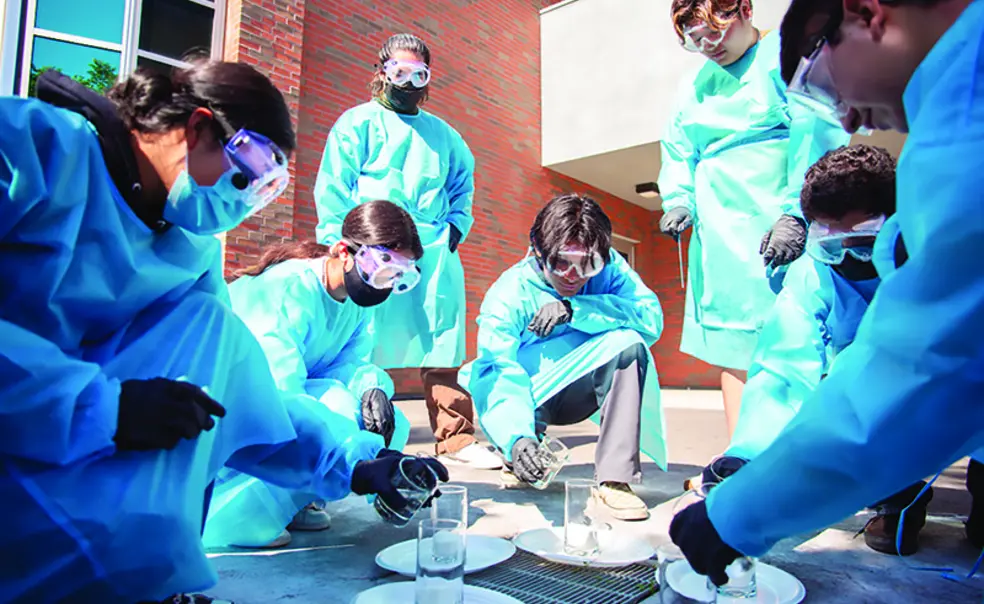Princeton to Provide More Money for Undergrad Service Internships
The move will expand Princeton’s new Learning and Education through Service (LENS) initiative
Last summer, astrophysical sciences major Diego Solorio ’24 knew he wanted to do two things: teach science to kids and spend time at his home in Southern California. But he wasn’t sure how to make it happen until he talked to staff at the Pace Center for Civic Engagement, who encouraged him to apply for a grant.
Solorio ended up teaching a STEM course to 27 students in his hometown, which he describes as an underprivileged Latine community, thanks in part to $6,000 in funding awarded through the John C. Bogle ’51 Fellows in Civic Service program. “The fact that there weren’t barriers in creating this program was incredible,” he told PAW last summer.
“I think the hope is that we can continue to scale up what we’re able to do until we feel like we really have met student demand for how many students want to do these every summer.”
— Kimberly Betz, executive director for the Center for Career Development
Now, more undergraduates can pursue summer service work — with the comfort of knowing they’ll be paid for their time — thanks to Princeton University’s new Learning and Education through Service (LENS) initiative. (President Christopher Eisgruber ’83 admits the acronym takes advantage of “alphabetic liberties,” drawing both the “e” and “n” from education.)
LENS will increase the number of service internship opportunities available to students as well as provide stipends to those who choose to design their own summer experiences focused on service and social impact outside of Princeton. In a video message accompanying the University’s Oct. 31 announcement, Eisgruber said LENS “makes it easier for students to find service internships that are both personally meaningful and respond to the needs of the world, and it provides financial support to ensure every qualifying internship is a paid internship.”
At a fall meeting of the Council for the Princeton University Community, Jessica Matzko, senior associate director at the Center for Career Development, said, “One of the things that LENS allows us to do is to make … opportunities more visible, more accessible, more legible to every student, and something that is no longer a hidden curriculum on campus.”
Undergraduates can apply after their first, sophomore, or junior years. The application process may include a meeting with an adviser from the Center for Career Development or the Pace Center, which jointly coordinate LENS.
“My hope is that every student would want to do a service internship during one of their summers,” Kimberly de los Santos, executive director of the Pace Center, told PAW.
The LENS site (lens.princeton.edu) provides information on existing internships — such as Princeton Internships in Civic Service and Vote100 — as well as potential funding sources — like the Bogle Fellowship and the Summer Social Impact Internship Fund — for those who would rather create a project.
“I think the hope is that we can continue to scale up what we’re able to do until we feel like we really have met student demand for how many students want to do these every summer,” said Kimberly Betz, executive director for the Center for Career Development.
Betz said summer service internships can help guide students’ post-graduation decisions; career development advisers encourage students considering summer service to reflect upon “what’s the work that needs doing in the world? What’s important to me? What are my values and how can I pursue that?”
This story has been updated from its original version with the correct amount Solorio received from the John C. Bogle ’51 Fellows in Civic Service program.












No responses yet